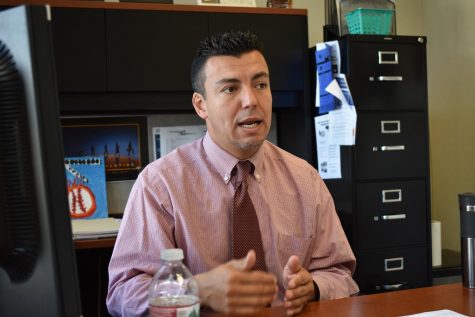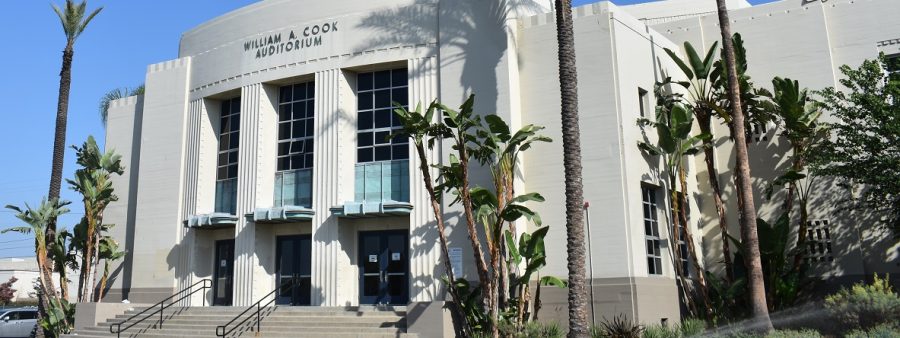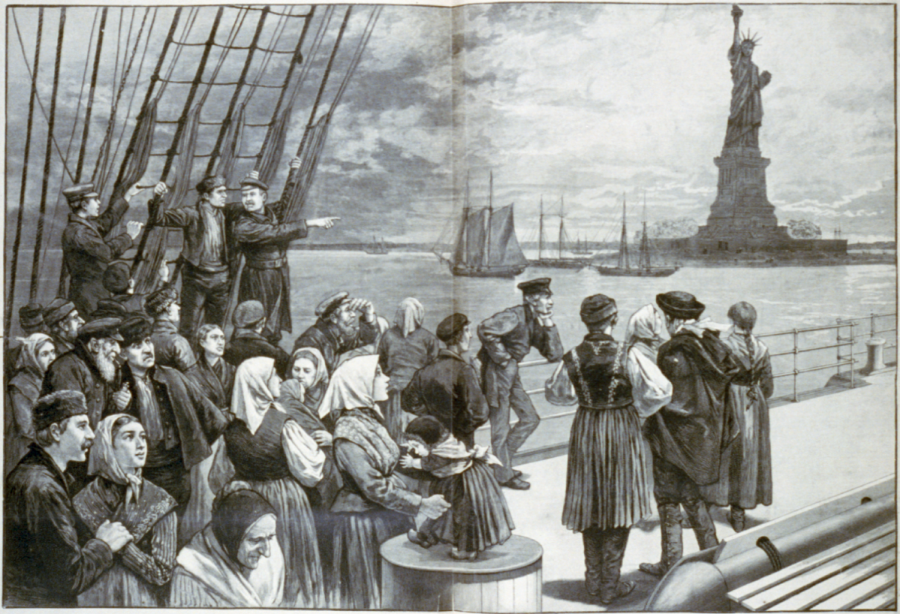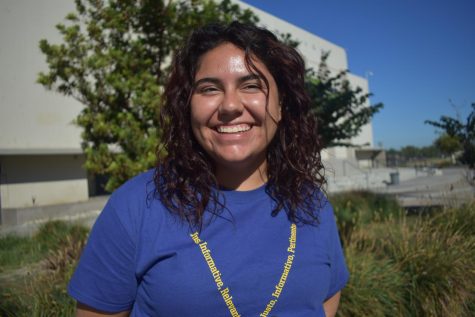Coming From an Immigrant Family
March 5, 2019
From March 4th to the 8th, students of Anaheim High School will come together to celebrate Unity Week. A week where our community of different cultures, faiths, experiences, and ideas learns from one another and recognize that unity is the key to our future.
This week is a reminder to students that unity will build a better future than division ever will — a future where all people are treated as equals and live with mutual respect and understanding. Unity does not signify uniformity, but rather, it emphasizes our rights to flourish and thrive together as people.
The United States is a diverse country full of unique people with their own stories leading to their upbringing. From the beginning of its history, it has been made up of immigrants. The land that is now called the United States was once home to Native Americans who had also migrated during the last Ice Age using a strip of land that used to connect Asia to North America. More recently, immigrants and their U.S.-born children now amount to approximately 86.4 million people according to the Current Population Survey (CPS). Mexicans accounted for approximately 26 percent of that total making them, by far, the largest foreign-born group in the country followed by Indians and Chinese.
For most of history, migration from Mexico to the United States has been directed by low-skilled, unauthorized workers seeking economic opportunity. Our principal of Anaheim High School, Roberto Saldivar, is proud of his culture and his immigrant family background and shared his family’s experience as immigrants to the United States, “The reason my grandparents crossed over was for a better life. There were times where they would outgrow their shoes and clothing and could not afford to buy more. They would hear stories about life in the US and how people from their ranch [near Jerez, Zacatecas] were able to make a better living over here.”
Mr. Saldivar talks about the experience his grandparents had as they immigrated to the United States from Mexico. He says. “My [paternal] grandpa crossed over illegally [he swam across the Rio Grande] near McAllen, Texas with a cousin of his; leaving my grandma and his four young sons behind, to work, save money and eventually bring the rest of his family over. After many years of being away from his wife, four sons (my dad was second oldest) and working for a couple of dollars an hour, my grandpa was able to save enough money and bring the rest of his family over to begin a new life here in the US.” It was a natural occurrence for the head of the family to chase after economic success and send the money back to their family. In the 1940s, it was popular for the head of the household to work in the United States while sending the money back to their families in Mexico. However, in the 1980s, it became much harder for the individual to continue migrating back and forth between their families and their job. The Border Patrol began to increase. Modern technology such as building the first physical barrier in 1990 along the border of San Diego, California, and Tijuana, Mexico.
Consequently, many started to bring their families and began to settle in the United States instead of continuously making the trip back and forth. Mexican immigrants were stereotyped as physically strong and able to put up with unhealthy and demanding working conditions. Thus, most of the Mexicans who had immigrated worked as laborers but later on took jobs in hotels, construction, restaurants, and factory work after permanently settling.
Before the U.S. Supreme Court case, Plyler vs. Doe, in 1982, undocumented children and young adults did not have the same rights to attend public primary and secondary schools as U.S. citizens as permanent residents did. It was no different for Mr. Saldivar’s parents. “My mom and her family moved into the Los Angeles area and she began working at a factory where one of her older sisters worked… My dad began working with his parents as a “picker.” He would pick grapes, oranges, strawberries, etc. all around the Anaheim area and up through Fresno.” However, this did not stop his parents from wanting to succeed for their children. Saldivar’s father decided to attend night school to learn English, hoping to achieve a better job. At 19 years old, his father was successful and was able to land a construction job only a year after taking English courses and worked there for the next 28 years. Both his mother and father were able to work under the Anaheim Elementary School District (AESD): his father as a custodian and his mother as a supervisor.

In recent years, the United States has seen anti-immigration waves. The current president, Donald Trump, and his supporters have been very insistent that immigrants are the cause of crime in the United States and that a border wall will combat drug trafficking and criminals from entering the country. Saldivar says, “I don’t agree with the way he is portraying immigrants. This country was founded by hard-working immigrants from all across the world. Europeans, Mexicans, Asians, Central and South Americans, etc. have all come to the US and made this country what it is now…I feel for those families who are living in fear of being deported who have done nothing but come to this country to work hard and search for a better life.” Like his own family, the majority of immigrants are only seeking to better their own lives as well as their family and future. Immigrants make the United States the country it is now and are a piece of American culture.
As new immigrants come and settle, some find it hard to assimilate to the culture around them as well as having to endure the discrimination that they face nowadays. Mr. Saldivar shares that sometimes it is difficult being a part of a group that is targeted. “I recall times when we were treated differently because my parents would struggle to communicate in English. Whether it was a store employee losing their patience with my mom due to her limited English or a school employee treating us differently because my parents would struggle to communicate, it was a terrible feeling.” However, Saldivar did not let any of the negative comments or attitudes affect him. On the contrary, Saldivar says that these “experiences have fueled [his] drive to succeed.”
Mr. Saldivar shares one final piece of advice: “ When you have goals, have a strong work ethic, and have the drive and passion for succeeding, it shouldn’t matter what your race is…nothing should stop you. That is the beauty of America….regardless of any challenges that we may be facing; the opportunity to come together and persevere both as a country and individually will always be there.”
Understanding one another is what unites us as people. Treating one another as equals will brighten the future for future generations. Unity will keep people together. Although every single person is different, we aim to challenge perspectives on matters of diversity, inclusivity, and solidarity in our evolving globe.




RobertoR. Saldivar • Mar 5, 2019 at 11:34 am
Great article, Melanie!!
Thank you again, for allowing me to tell part of my family’s story.
Mr. Saldivar